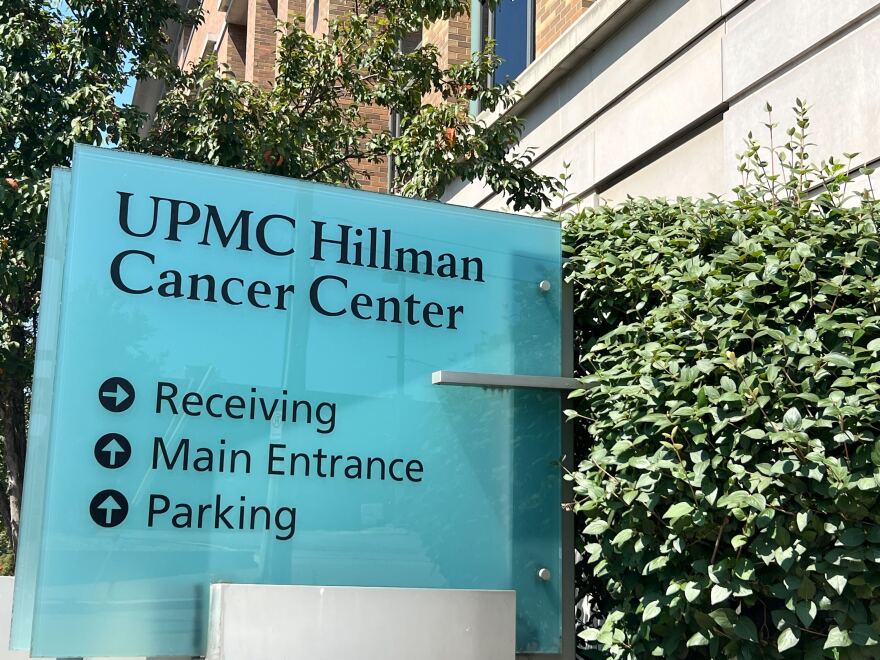Health
New Trial Delivers Radiation Before Surgery for Breast Cancer

A clinical trial at the UPMC Hillman Cancer Center is pioneering a novel approach to treating early-stage breast cancer by administering radiation before surgery. This innovative method aims to shrink tumors using targeted doses of radiation, potentially reducing the need for surgery altogether.
The trial is spearheaded by Dr. Parul Barry, a radiation oncologist, and Dr. Ravi Patel, a physician-scientist at the University of Pittsburgh. Traditionally, patients receive radiation therapy after surgery, which can take between three to seven weeks. This lengthy treatment schedule often deters women, especially those with work or caregiving responsibilities, leading to a significant percentage—the one-third of patients—who do not complete their prescribed radiation.
In contrast, the current trial involves just five radiation treatments over a week, significantly shortening the overall treatment duration to approximately three weeks. “With just five treatments and relatively low toxicity, you’re kind of mitigating some of the reasons why people may skip radiation,” said Barry. “Patients can fly through the treatment and tolerate it well.”
The trial also explores how pre-surgical radiation may enhance the body’s immune response against cancer. Dr. Patel noted that irradiating the tumor can cause cancer cells to die and release neoantigens, which the immune system can recognize and target. “We can potentially mount an immune response against cancer if we give the radiation upfront rather than after surgery,” Patel explained.
Innovative Collaboration in Cancer Treatment
A distinctive aspect of this trial is the collaboration between clinicians and researchers at Hillman. Blood samples from participants are quickly sent to Patel’s lab for analysis of immune markers and molecular responses. This immediate feedback allows researchers to identify which patients may benefit most from this approach, potentially paving the way for certain individuals to avoid surgery entirely. “This is truly a bench-to-bedside trial,” Barry stated. “That’s the only way we’ll actually be able to move precision therapy forward.”
In discussions about clinical trials, Dr. Margaret Quinn Rosenzweig, an oncology nurse-researcher at the University of Pittsburgh, emphasized that patients often seek reassurance from their physicians when considering participation. “Is this something you would recommend for me? And is this something you would do for your own family?” she noted as common questions from patients.
Rosenzweig highlighted the importance of trials like Barry’s, which arise from clinicians confronting practical questions in their daily routines. “It’s a brave clinician who’s questioning their own practice,” she remarked. “It’s really a true scientist who will say, are we doing everything in exactly the way we should be or could we change this?”
The practice of delivering radiation before surgery is not entirely new, having become standard in colorectal cancer treatment. It is increasingly being explored for other cancers due to the potential benefits of shrinking tumors and preserving organ function. Barry indicated that early results from their trial have been promising, with patients experiencing minimal side effects. “Overall, [the breasts] look almost as normal as they did before surgery,” she reported. “People are healing very, very well with very low toxicity.”
This research has the potential to significantly impact the way breast cancer is treated, allowing more women to retain their breasts while still achieving effective cancer treatment. “A lot of what radiation allows for is organ preservation,” Barry mentioned. “For women, breasts are so important psychosocially. Radiation allows people to still get cancer cure without too much disfigurement.”
Currently, Barry and Patel’s trial is enrolling patients diagnosed with stage 1 hormone-sensitive breast cancers. The team hopes to extend their research to include higher-risk cancers and explore new combinations of radiation with chemotherapy or hormone therapy, further enhancing treatment options for patients.
-

 Top Stories1 month ago
Top Stories1 month agoRachel Campos-Duffy Exits FOX Noticias; Andrea Linares Steps In
-

 Top Stories1 week ago
Top Stories1 week agoPiper Rockelle Shatters Record with $2.3M First Day on OnlyFans
-

 Top Stories6 days ago
Top Stories6 days agoMeta’s 2026 AI Policy Sparks Outrage Over Privacy Concerns
-

 Sports5 days ago
Sports5 days agoLeon Goretzka Considers Barcelona Move as Transfer Window Approaches
-

 Top Stories1 week ago
Top Stories1 week agoUrgent Update: Denver Fire Forces Mass Evacuations, 100+ Firefighters Battling Blaze
-

 Top Stories1 week ago
Top Stories1 week agoOnlyFans Creator Lily Phillips Reconnects with Faith in Rebaptism
-

 Top Stories5 days ago
Top Stories5 days agoWarnock Joins Buddhist Monks on Urgent 2,300-Mile Peace Walk
-

 Entertainment6 days ago
Entertainment6 days agoTom Brady Signals Disinterest in Alix Earle Over Privacy Concerns
-

 Top Stories1 week ago
Top Stories1 week agoOregon Pilot and Three Niece Die in Arizona Helicopter Crash
-

 Top Stories4 days ago
Top Stories4 days agoCBS Officially Renames Yellowstone Spin-off to Marshals
-

 Health2 months ago
Health2 months agoTerry Bradshaw Updates Fans on Health After Absence from FOX NFL Sunday
-

 Sports4 days ago
Sports4 days agoSouth Carolina Faces Arkansas in Key Women’s Basketball Clash



